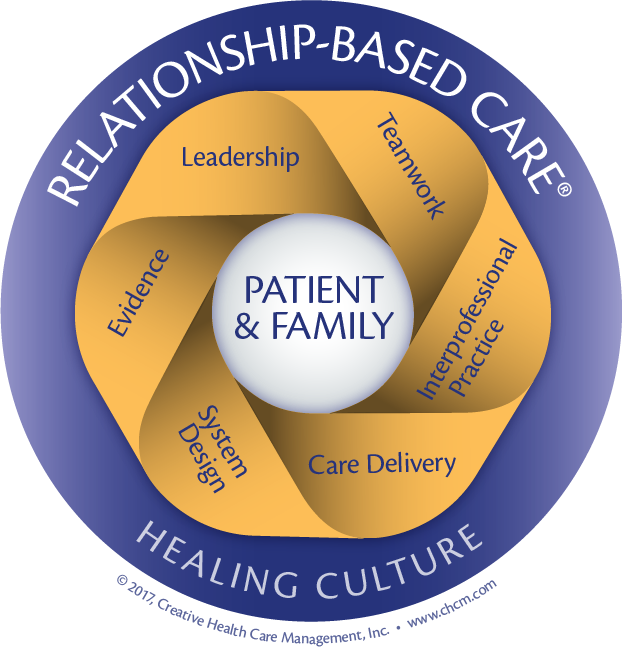
Relationship-Based Care® – Patient and Family
When discussing patients and families in the context of healthcare, it refers to the patient and the patient family relationships along with the interactions of the healthcare team with the
In a Relationship-Based Care organization employees feel empowered and trusted (because they are) and therefore are engaged and satisfied. The Relationship-Based Care model and supporting programs for implementation integrate eight dimensions that support high quality clinical caregiving. These eight dimensions are Healing Culture, Patient and Family (in the center of care), Leadership, Teamwork, Interprofessional Practice, Care Delivery, System Design, and Evidence.





A Quick Guide to Relationship-Based Care is a 68-page booklet outlining the basics of Relationship-Based Care®. This valuable resource is ideal for orientation of the entire workforce in organizations implementing Relationship-Based Care.
Recently edited and redesigned to increase clarity, they are used by thousands of health care workers around the world.
Advancing Relationship-Based Cultures explains and expands a fundamental and often overlooked truth in health care: It is the confluence of relational and clinical competence that advances relationship-based healing cultures.
Recently edited and redesigned to increase clarity, they are used by thousands of health care workers around the world.
Advancing Relationship-Based Cultures explains and expands a fundamental and often overlooked truth in health care: It is the confluence of relational and clinical competence that advances relationship-based healing cultures.

When discussing patients and families in the context of healthcare, it refers to the patient and the patient family relationships along with the interactions of the healthcare team with the

A big part of Relationship-Based Care® and Magnet® Recognition is recognizing what it will do to improve nursing excellence and patient outcomes for healthcare organizations. The pursuit of excellence extends

The term “C-Suite” refers to the group of top-level executives within an organization whose titles usually begin with the letter “C,” standing for “Chief.” In the healthcare industry, the C-Suite